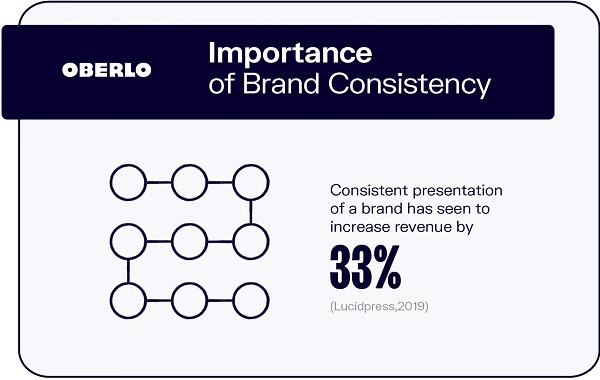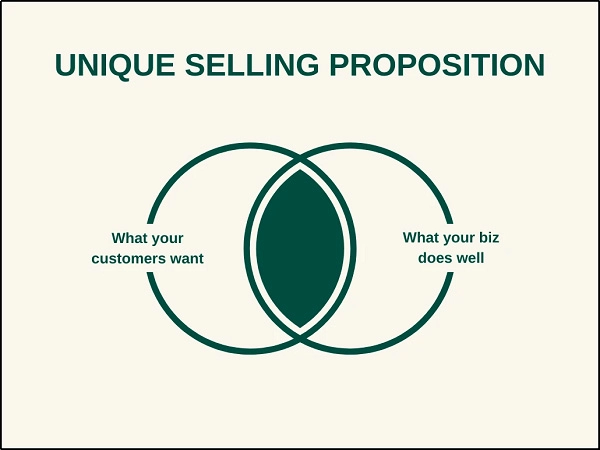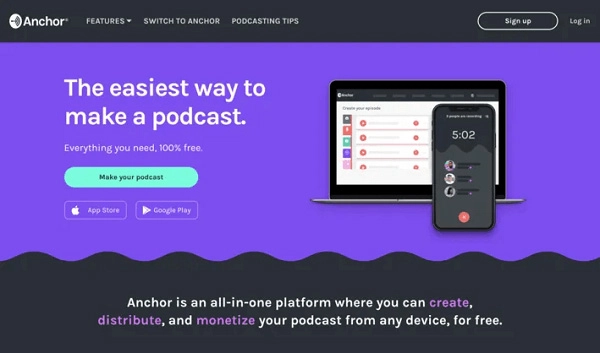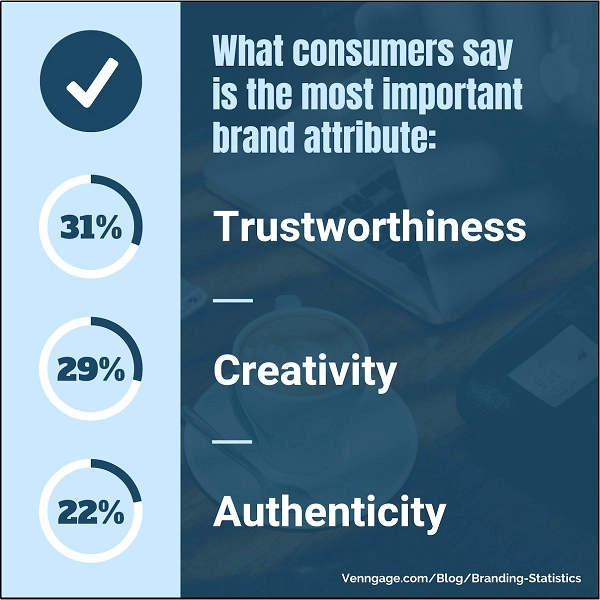
Introduction
B2B demand creation is an important aspect of marketing that involves creating brand awareness, increasing web traffic and getting new leads. Without creating demand, B2B companies run the risk of experiencing low sales and reduced profits.
Brand messaging is one of the most effective ways to generate demand for B2B companies. While it serves as a great tool for capturing customer attention, it’s not that easy to hack.
In reality, brand messages transcend the deals and services that a company offers, enabling it to build a solid customer base. This is because, when customers are evaluating brands, they rely on their emotions and experiences more than they do facts and logic.
There are clear statistics to support this. As a matter of fact, over 80% of buyers agree that the main reason why they connect with company brands is due to shared values. .
Better still, businesses that maintain a consistent brand are able to boost revenue by 33%.

Source: Oberlo
In very basic terms, brand messaging uses the core aspects of a company’s brand to appeal to the hearts of its target audience as opposed to their minds. It involves finding the right words and using them to communicate your brand essence to potential customers.
While this can be a huge challenge for B2B marketers to hack, those that overcome it are able to expand their audience, generate more demand for their offerings and increase their sales revenue.
Why Brand Messaging Is Important For Demand Generation :
- Telling the Brand Story
- Communicating Your Company’s Unique Selling Point
- Resonating With Your Company’s Target Audience
- Driving Brand Recognition
- Demonstrating Authenticity
1. Telling the Brand Story
In the modern overly-automated, fast paced, and highly digital world, the human touch has become scarce. In such an environment, B2B companies must find a new way to connect and engage their audiences at a deeper level. This is why telling stories has become an integral part of brand messaging and a highly effective tool for generating demand.
A study conducted by OneSpot research showed that 92% of consumers prefer brands that make their ads feel like a story.
The thing is, customers will connect with a human story irrespective of the industry you’re in. Statistics show that brand messages that contain stories are 22 times more memorable than those that contain facts.
Every brand in the market has a story. However, it is only when their story is told in a good, human way that customers and prospects are able to connect with the brand emotionally. Brand messaging uses emotions to tell stories that take audience connection to a whole new level.
While your brand colors and logo selection matters, it is the stories that brands share that tend to carry the day. Reason – stories evoke emotions and emotions influence the buying decisions that customers make. Though they’d like to be logical, rational buyers, customers always base their buying decisions on how they feel.
Brand messages that are centered around a good story is a great way of capturing the attention of your audience and creating demand. Successful B2B businesses tell brand stories that capture interesting messages like:
- Why their products exist or
- How they came to the market or better still
- What their offerings mean to them and their customers
2. Communicating Your Company’s Unique Selling Point
Every business needs a unique selling point to get noticed and attract customers. In very basic terms, a unique selling point is that aspect of business communication that highlights the things that differentiates your brand from others and convinces customers why they need to buy your products and not those of your competitors. Successful brand messaging strategies have very attractive unique selling points.

When it comes to B2B selling, your company must understand the factors that drive B2B buying and craft a unique selling point that resonates with the target market.
The way to generate B2B demand with brand messaging is to craft a unique selling point that shows your target audience how your product or service offerings:
- Helps them improve performance either by increasing profits, reducing cost or boosting productivity
- Gives them a competitive advantage by leveraging niche markets, lowering cost or enhancing differentiation
- Enables them to mitigate risk
- Increases opportunity for their business by expanding their market, creating new products, or exploring new markets
- Enables them to win
By crafting a unique selling point around one or more of these factors, B2B marketers are able to attract prospects and customers and therefore generate more demand for their products or services. Even so, a strong unique selling point does not have to be based on the features of your offerings.
Take a company like Zappos for instance. While its product range isn’t necessarily unique, the company that managed to differentiate itself from the competition through its exceptional customer service through a brand message that communicates the help it offers customers to complete tasks faster, make life easier and perform tasks with accuracy.
Another great example is Anchor – the company’s unique selling point reflects simplicity in a highly complex world.

3. Resonating With Your Company’s Target Audience
To attract customers and generate demand for their product or service offerings, B2B companies must communicate messages that resonate with their target audience. The only way to do this successfully is to have a solid understanding of their target audience. This means knowing exactly who you’re directing your marketing efforts to, what they value and care about, and the kind of language they respond to.
It’s virtually impossible to develop a successful brand messaging strategy if you don’t know who your messages are aimed at. Through brand messaging, B2B companies generate demand by finding the balance between leveraging big data and connecting with their audience with just one story line.
In most instances, optimizing creative performance enables them to shape their brand voice and craft a message that resonates with their audience and fuels growth.
4. Driving Brand Recognition
Brand recognition is an important aspect of B2B marketing. As a matter of fact, it forms the very first step in the marketing funnel and a critical foundation in customer acquisition.
Every day, consumers are bombarded by different brands. A lot of these brands come into their lives and quickly pass without capturing their attention. With so many brands to choose from, brand messaging plays a critical role in helping businesses stand out of the competition. Strong brand messages are easy for people to recognize.
Brand recognition is achieved through brand awareness. It is about ensuring that people are able to recognize and recall your brand with ease. By increasing brand awareness, businesses are able to keep their brands top on the minds of their audience. This means that when their targets are faced by a decision to make a purchase, they are likely to buy from them and not their competitors.
Brand recognition enables B2B companies to generate demand in various ways:
- It expands their target audience
- It builds brand affinity
- It boosts web traffic
- It nurtures new leads
5. Demonstrating Authenticity
People want to buy from businesses that are both authentic and trustworthy. As a matter of fact, 31% of customers consider trustworthiness a very important aspect of any brand.
In the US, four out of 10 consumers have boycotted brands that have been linked to irresponsible behavior. At the same time, statistics show that 86% of buyers want to buy from brands that portray an honest and authentic personality on social platforms.
Authenticity is an important aspect of B2B marketing. The trust it builds enables companies to set themselves apart from the competition, appeal to their target audience, and generate demand for their product or service offerings
In B2B marketing, brand messaging enables companies to position themselves as authentic and trustworthy to their target audience.

Some of the things that make brand messages authentic and trustworthy include:
- Honesty: Enables you to be transparent and open about your strengths and weaknesses. It also means being open enough to let your audience know what they can achieve with your product and what they can’t
- Consistency: Ensures that your target audience knows what to expect every time
- Offer value: Ensures that you keep people before profit – often, your target audience is able to tell the difference
Brand Messaging for Demand Generation
Brand messaging plays the critical role of using the right words to inform your target audience what your brand is all about. Customers and prospects respond to brand messages based on how those messages make them feel.
When a brand message elicits positive emotions in your target audience, there’s demand for your product or service offerings. The opposite is also true – few people will want to buy from you if your brand message does not capture their attention in a way that elicits positive emotions.
Every business, whether big or small, uses brand messaging to power its marketing efforts. There are five ways that brand messaging helps B2B companies to generate demand. It:
- Tells their story
- Communicates their unique selling point
- Demonstrates the authenticity of the business
- Resonates with their target audiences
- Drives recognition of their brand
These are the reasons why brand messaging is at the heart of generating B2B demand.
Our blog
Latest blog posts
Tool and strategies modern teams need to help their companies grow.

This comprehensive guide covers everything about service marketing—its unique chara...

Believe it or not, the concept of content sharing existed long before the Internet. I...

Sales analysis is essential to avoid inaccurate forecasts and identify improvement op...




